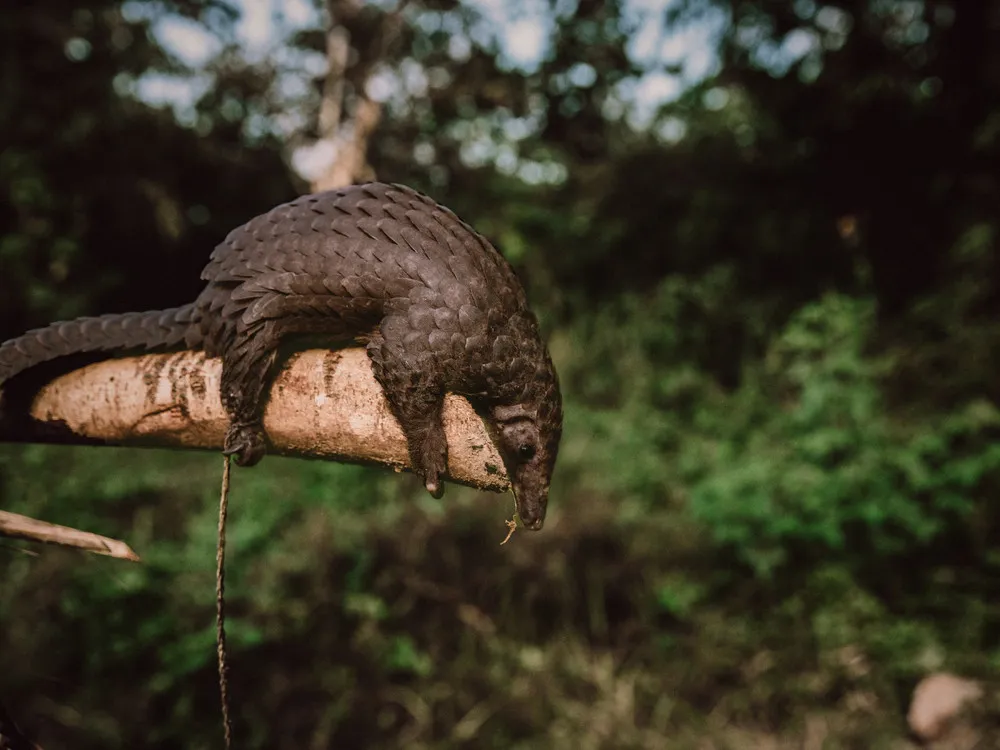|
A pangolin captured by hunters in the Ituri rainforest, in Mambasa territory, Democratic Republic of the Congo, 19 October 2020. The risk of a new pathogen coming in contact with human populations is increased in areas with high biodiversity like Congo. Over 72 percent of the country lives on less than USD 1.90 a day, which makes free sources of food like hunting essential in parts of the country where hunting and fishing are a viable option. Human populations come into contact with animals and pathogens during activities such as hunting for food or the exotic animal trade and deforestation. With deforestation and habitat loss, animals are more likely to move into new areas and come into contact with human beings for the first time. Humans living in these high-risk areas have a far greater chance of becoming a 'patient zero' for virus spillover than elsewhere. The exotic animal trade is also an attractive source of revenue as Congo still hosts many exotic animals, including pangolins, the mammal suspected to be a secondary host for COVID-19 before it spilled over into the human population. There exists a precarious situation where conservation is a losing battle due to governance factors, and Congo’s biodiversity posits a distinct likelihood for a new virus to jump from an animal to a human population. Mammals alone are estimated to host at least 320,000 undiscovered viruses. (Photo by Hugh Kinsella Cunningham/EPA/EFE)
|

